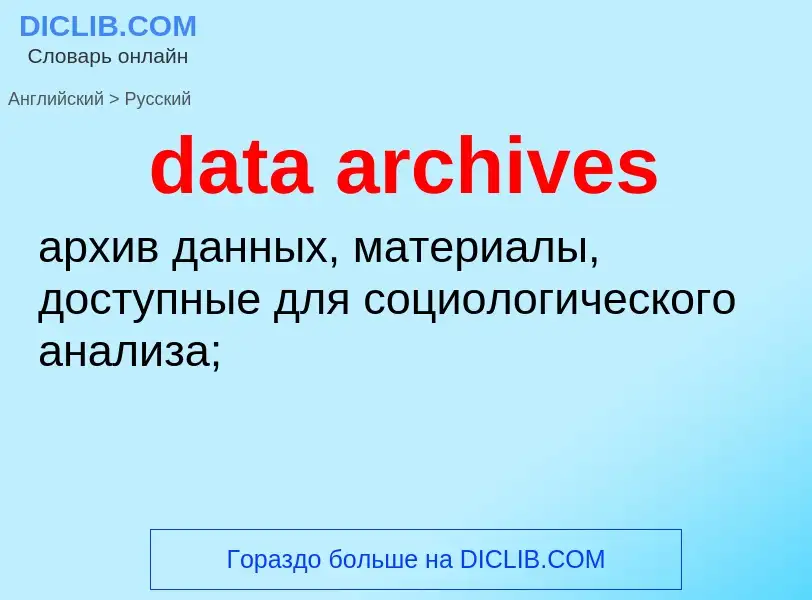Translation and analysis of words by ChatGPT artificial intelligence
On this page you can get a detailed analysis of a word or phrase, produced by the best artificial intelligence technology to date:
- how the word is used
- frequency of use
- it is used more often in oral or written speech
- word translation options
- usage examples (several phrases with translation)
- etymology
data archives - translation to russian
общая лексика
очистка данных
процедура обработки данных с целью повышения их качества
Смотрите также
математика
набор данных
Definition
Wikipedia
Research data archiving is the long-term storage of scholarly research data, including the natural sciences, social sciences, and life sciences. The various academic journals have differing policies regarding how much of their data and methods researchers are required to store in a public archive, and what is actually archived varies widely between different disciplines. Similarly, the major grant-giving institutions have varying attitudes towards public archival of data. In general, the tradition of science has been for publications to contain sufficient information to allow fellow researchers to replicate and therefore test the research. In recent years this approach has become increasingly strained as research in some areas depends on large datasets which cannot easily be replicated independently.
Data archiving is more important in some fields than others. In a few fields, all of the data necessary to replicate the work is already available in the journal article. In drug development, a great deal of data is generated and must be archived so researchers can verify that the reports the drug companies publish accurately reflect the data.
The requirement of data archiving is a recent development in the history of science. It was made possible by advances in information technology allowing large amounts of data to be stored and accessed from central locations. For example, the American Geophysical Union (AGU) adopted their first policy on data archiving in 1993, about three years after the beginning of the WWW. This policy mandates that datasets cited in AGU papers must be archived by a recognised data center; it permits the creation of "data papers"; and it establishes AGU's role in maintaining data archives. But it makes no requirements on paper authors to archive their data.
Prior to organized data archiving, researchers wanting to evaluate or replicate a paper would have to request data and methods information from the author. The academic community expects authors to share supplemental data. This process was recognized as wasteful of time and energy and obtained mixed results. Information could become lost or corrupted over the years. In some cases, authors simply refuse to provide the information.
The need for data archiving and due diligence is greatly increased when the research deals with health issues or public policy formation.

